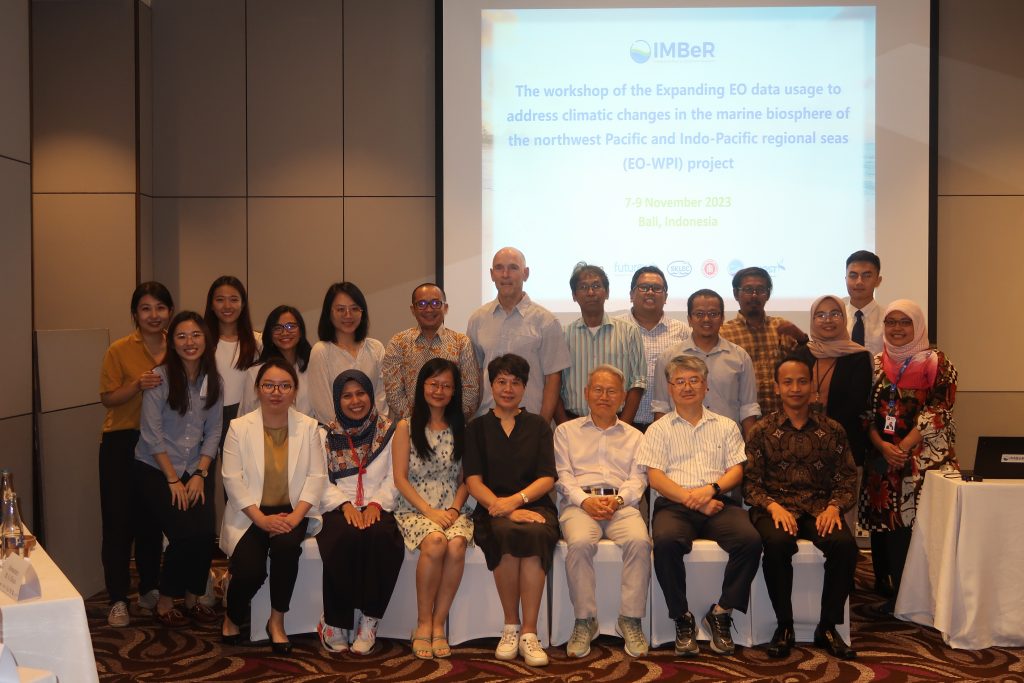ESA-Future Earth Joint Program funding provides mentoring for the next generation of marine monitoring scientists
The basic building blocks of the marine biosphere are phytoplankton, which are tiny floating plants that get their energy from photosynthesis. There are more than 100,000 different species of phytoplankton that thrive in different ocean regions.
In the northwest Pacific and Indo-Pacific seas, human pressures and climate change are together driving increases in eutrophication, heat waves and water quality degradation, affecting the sustainability of fishing and aquaculture in the region and seriously impacting marine ecosystems and human health.
Satellites such as the Copernicus Sentinel-3 mission, offer a comprehensive view to monitor the changes happening to phytoplankton via ocean colour imaging, including long-term records generated via the ESA Climate Change Initiative. But compared to European seas, the optical characteristics in the Indo-Pacific and northwest Pacific seas have not been investigated enough to enable an understanding of sustainable marine management.
The IMBeR Ocean Color-based Plant species identification and Carbon flux in the Indo-Pacific oceans (OCPC) study group was established to address these challenges. In 2023 it won funding via the ESA-Future Earth Joint Program to support a uniquely successful mentoring and training project to upskill early career researchers in the region.
Starting with a survey to identify graduate students who were genuinely interested in conducting a research study, and maintaining a balance for equity and diversity, the leads selected 13 participants, mainly early career participants, from Indonesia, Malaysia, the Philippines, and Singapore. These were each paired with a member of the OCPC for mentoring.
The project ran 3 online training sessions and lectures held May-September 2023 to equip the participants in handling Earth observation data for ocean colour and applying it to specific practical challenges in the region.
It then hosted a 3-day in-person workshop in Bali Indonesia, 7-9 November 2023. Each of the 13 participants is now finalizing their manuscripts for publication in the open access Journal of Sea Research.

“I never thought it would be so quick. I’m very shocked that I ran my data by myself, and we managed to get things done so quickly, I was writing my manuscript on just day two,” says student Ms Evonne Tan, a workshop participant from Universiti Sains Malaysia, Malaysia.
Mature scientists appreciated having an opportunity to network and engage deeply in their area of expertise. “I have met scientists with similar expertise to me, with whom I can share my data and knowledge about what is happening in my region and with neighbouring countries,” says Dr Madihah Binti Jafar Sidik, a workshop participant based at Borneo Marine Research Institute, Universiti Malaysia Sabah, Malaysia. “I have never attended this kind of workshop that made me happy the whole day!”
“Many governments and authorities in the region need scientific information to be able to predict fishing yields. Because the pressures on the marine biosphere are all connected, both scientists and policymakers need a broad data and understanding of the system,” says Professor GiHoon Hong, coordinator of the OCPC study group, who is the IMBeR IPO Strategy Director based at the State Key Laboratory of Estuarine and Coastal Research, East China Normal University.
To this end, the workshop brought together researchers from various different disciplines to study the optical properties of seawater, chlorophyll-a, ocean management practices, fish yields, and risk mitigation.
“We hope this workshop builds a bridge to help those participants without a background in remote sensing to expand the data applications and empower marine biosphere research,” says Professor Shen Fang, co-chair of the OCPC study group, who is based at the State Key Laboratory of Estuarine and Coastal Research, East China Normal University. “This workshop has exceeded our expectations. We look forward to strengthening international cooperation to further study the response of marine ecosystems to climate change.”
Further information
- Links to IMBeR IPO-China website, OCPC study group, and EO-WPI Project
- Link to project final report
- Link to Copernicus Marine Service for operational ocean colour data and trainings
- Link to ESA’s Ocean Colour CCI project
